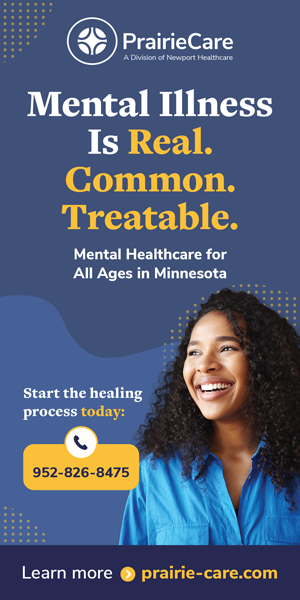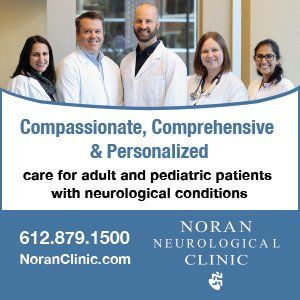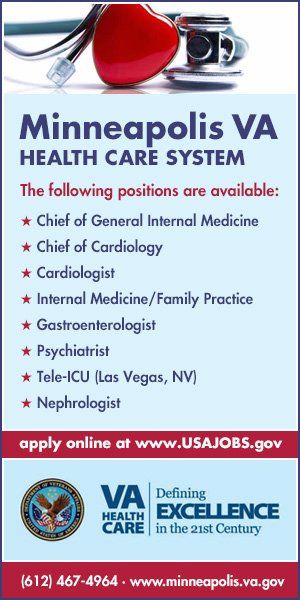veryone understands violent crime is a serious problem but many important issues associated with violent crime are often overlooked. For starters, a consistent definition is lacking. Violent crime encompasses many things, from shootings and stabbings, to physical assault, which includes a wide range of sexual-related offenses, to intimidation and psychological abuse. The scope of violent crime is also difficult to define. Police reports are a common standard for measuring crime rates but domestic crimes are often unreported. Recent statistics in Minnesota report around 2,000 violent crimes per 100,000 residents (around 60,000 annual cases) but this only begins to tell a bigger story.
Public Health
The Next Step Programs
Healing for survivors of violence
BY Kentral Galloway and Derek Lumbard, MD, FACS
Hennepin Healthcare is an adult and pediatric Level 1 trauma center accredited by the American College of Surgeons and, among many other things, delivers essential, lifesaving care to severely injured patients. We see the results of serious violence more than any other single hospital in Minnesota and are experts at stabilizing physical injuries and developing appropriate physical rehabilitation treatment strategies.
One thing we have learned, around which there is an emerging and growing national awareness, is that treating violent crime-related physical injuries alone is insufficient to support long-term healing. Recovery for survivors of violent injury requires social support in addition to clinical care. Hospital-based violence intervention programs (HVIPs) represent a vital shift toward a public health framework that acknowledges violence as a preventable event. These programs operate at the juncture of trauma care and health equity—recognizing that systemic inequity, such as poverty, racial discrimination and housing instability, are root contributors to community violence. HVIPs are emerging as vital extensions of trauma care, addressing the social determinants of health and breaking cycles of violence.
Violence is a public health crisis.
Violence is not often caused by a single factor, it is usually a combination of factors. The risk of violence can increase or decrease based on individual, community, relationship and societal considerations. To break the cycle of violence it is important to understand and address these root causes to identify and create opportunities for prevention.
Since 2016, Next Step, Minnesota’s only HVIP, has been at the forefront of this effort—offering comprehensive, trauma-informed support to survivors of violent crime in the Minneapolis metropolitan region. Next Step has grown to become a partnership among Hennepin Healthcare, North Memorial, Children’s Minneapolis, Abbott Northwestern and the City of Minneapolis, with additional support from the Minnesota Department of Public Safety – Office of Justice Programs.
A Growing Need
Violence is a public health crisis that disproportionately affects marginalized communities. Research indicates that individuals who survive violent injuries face a high risk of reinjury and retaliation, often returning to the emergency department within months. Trauma centers nationwide are increasingly integrating HVIPs into their care models to improve long-term patient outcomes beyond the immediate medical response. Next Step aligns with this national trend by providing hospital-based interventions designed to interrupt cycles of violence and prevent reinjury. Next Step provides support to survivors of all ages. It is based out of Hennepin County Medical Center and provides support to three additional hospitals in Hennepin County: Allina Abbott Northwestern, North Memorial Health and Children’s Minnesota.
While any survivor of violence could participate in the program, those who most commonly become involved are patients who have been hospitalized because they are the survivor of a stabbing, gunshot or other violent crime. Upon hospital admission, violence prevention specialists engage with patients at a critical moment—often referred to as the “Golden Moment”—when they may be most open to intervention. Throughout the patient’s stay, a hospital responder provides immediate bedside support and intervention for participants and their support systems. They meet daily in the hospital with survivors who want support in changing their lives and stopping the cycle of violence. Once back in the community, participants are assigned to case managers who offer individualized support tailored to their needs. Participants can remain involved with the program indefinitely and receive a holistic approach to patient care, integrating crisis intervention, trauma-informed case management and social services. This trauma-informed, human-centered approach lays the foundation for trust, healing and personal agency. Through the connection, survivors receive emotional support and resources to foster healing and long-term change.
What Support Looks Like
A survivor of violent crime is someone who suddenly has many new and oftentimes previously unconsidered needs. This begins with crisis intervention and short-term emotional support. It may involve finding a new place to live and addressing issues around job training and employment. It also involves utilizing crime survivor resources such as information about survivor rights and financial assistance that is available to crime survivors.
After assistance with hospital discharge, support continues through long-term case management and advocacy. Individuals receive mental health support, including therapy and resources for physical, mental and chemical health and well-being. Regular meetings of peer support groups and restorative healing circles are facilitated at the hospital. Assistance is also available for resolving legal issues.
Addressing health inequities requires robust collaboration between health care systems, public health agencies and communities. Next Step models this integrated approach, bridging hospital-based care with upstream community strategies. Aligning with public health goals, Next Step serves as a model for how trauma centers can advance equity through policy-aligned, community-informed interventions.
Additional Assistance
In addition to core support, Next Step has developed targeted initiatives to address specific needs. The Harriet Recovery Initiative, in partnership with Empower Therapeutics and Wellspring Second Chance Center, provides anger management and mental well-being programs for uninsured and underinsured survivors. This 12-week programs incorporate group therapy and individualized care to enhance resilience and coping skills, ensuring survivors receive culturally competent, holistic support.
Another key component of Next Step’s approach is peer support through monthly restorative healing circles for men and women of all ages. These circles offer survivors a space to share experiences, access emotional support and discuss recovery strategies in a community setting. Expert-guided discussions also connect participants with employment, education and additional social resources.
Economic instability often exacerbates trauma and hinders recovery. Many survivors require immediate financial assistance for essentials such as rent, childcare, food and utilities. Next Step case managers assess each participant’s needs, providing short-term financial aid and guiding them toward sustainable solutions. While the program offers direct assistance, the long-term goal is to connect participants with community providers for extended support.
Up to 45% of patients who have experienced a violent injury will sustain another.
Engaging the Community
Recognizing that effective violence prevention requires ongoing community involvement, Next Step along with the department of surgery and trauma at Hennepin Healthcare have established a community advisory board to guide program evaluation and research efforts. Composed of survivors, health care providers, local organizations and violence prevention experts, this advisory board plays a critical role in shaping Next Step’s research agenda and ensuring interventions are aligned with community needs.
The advisory board works collaboratively on many initiatives. These start with identifying emerging trends in community violence and developing strategies around injury prevention. The board also provides feedback on program effectiveness and areas for improvement. It ensures research efforts prioritize equity and lived experiences while strengthening partnerships between the health care system and community organizations. By incorporating community voices, Next Step fosters trust and ensures that research and programmatic changes are responsive, sustainable and culturally relevant.
Measuring Success
The ultimate goal of Next Step is to reduce rates of violent reinjury and rehospitalization while fostering holistic healing and community reintegration. Perhaps the biggest indication of success is lower rates of traumatic reinjury among program participants. Also important is to improve mental health status and increase trauma resilience. The board recognizes and encourages the value of increased economic stability and helps provide this through financial assistance and job placement. It fosters stronger community ties and the role they play in reducing the cycles of violence.
Below are participant statements about their experiences in the Next Step program.
“We just wanted to extend our deepest gratitude and appreciation to all the staff from Next Step. There were times when we did not know where to turn, and the Next Step staff were there for us.”
“I personally love Next Step. I love the way the caseworkers interact with me and my family. I love how they always have something going on for me or the kids. I love the support I get from them.”
“I’ve grown so much from being a part of Next Step. I accomplished so many achievements with them being in my life.”
“I enjoy Next Step. It’s a really good stepping stone and source of help. So far, they have helped me in many different ways such as getting household supplies, rent, food, etc.”
These outcomes reflect not only individual progress but also systemic change. By addressing violence as a public health issue, Next Step redefines the role of trauma centers in patient care. The program demonstrates that effective intervention extends beyond the hospital walls, empowering survivors to reclaim their lives and build safer communities.
Conclusion
Up to 45% of patients who have experienced a violent injury will sustain another, and one of the strongest predictors of future violent injuries is a prior injury. Thanks to the support and empowerment of Next Step staff, however, only 3% of participants in the program have been revictimized.
HVIPs like Next Step are transforming the landscape of trauma care by redefining what healing looks like, proving that medical intervention alone is not enough to break the cycle of violence. As more trauma centers integrate these programs, the potential to improve patient outcomes and public safety grows. Hennepin Healthcare remains committed to leading this charge, demonstrating that healing from trauma requires both medical expertise and compassionate, community-centered support.
For physicians, understanding the intersection of trauma and social determinants of health is critical. By advocating for and supporting HVIPs, health care professionals can play an active role in shaping a more holistic, effective response to violence—one that extends beyond the operating room and into the lives of the patients they serve.
Additionally, sustainable funding mechanisms are essential to ensuring the longevity and expansion of these programs. Expansion of Medicaid coverage for HVIP services at the state level presents a critical opportunity to secure stable reimbursement for HVIPs and violence prevention services, reducing reliance on short-term grant funding. By incorporating coverage of these services into Medicaid, Minnesota can join with other states to place violence prevention as a core component of health care, ultimately strengthening public health infrastructure and enhancing long-term patient outcomes.
Kentral Galloway, is the director of the Next Step Program.
Derek Lumbard, MD, FACS, is a trauma surgeon at Hennepin Healthcare.
MORE STORIES IN THIS ISSUE
cover story one
Volatile Organic Compounds: A beacon of hope
By David R. Brown, MD, DSc, Bradley S. Miller, MD, PhD and Andre Lamontagne, BEE, MBA
cover story two
The Future of Biomedical Research: A new presidential advisory from the American Heart Association





































